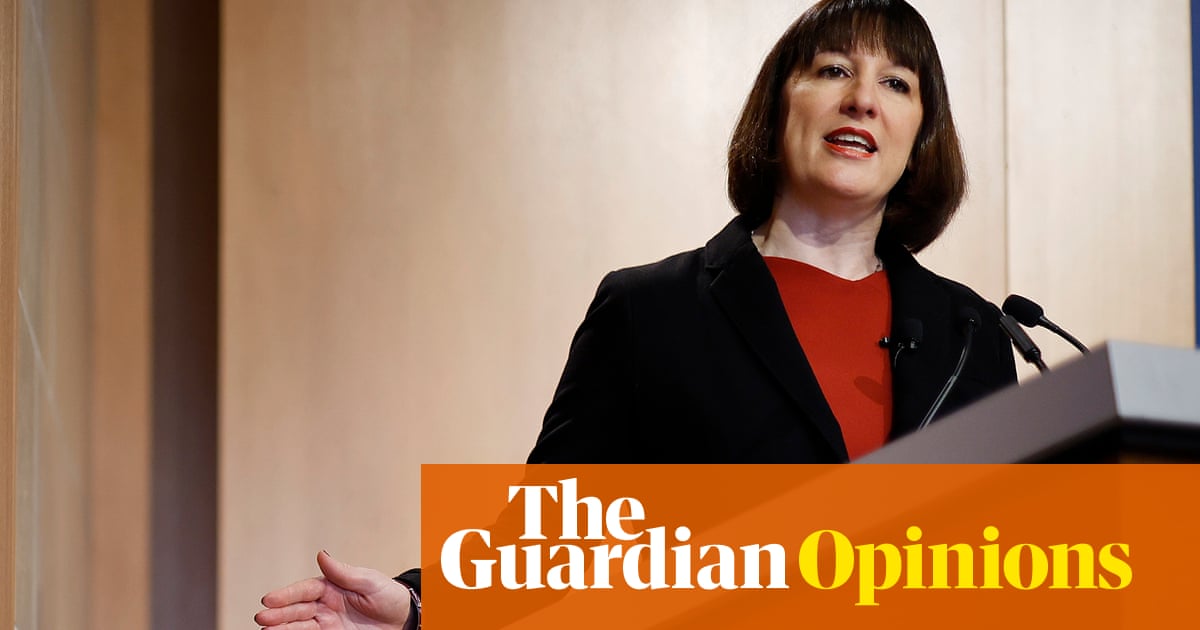
When Rachel Reeves stood up in the House of Commons on budget day on 30 October as this country’s first woman chancellor, she was brimming with pride: “To girls and young women everywhere, I say: Let there be no ceiling on your ambition, your hopes and your dreams.”
Four months on, however, there are few women or men, young or old, at Westminster, who would envy Reeves’s lot in charge of the country’s finances. The bind she finds herself in is more the stuff of a chancellor’s nightmares than dreams.
Things, broadly speaking, have not gone to plan for Reeves since the end of October, at home or abroad.
Growth has stalled – the Bank of England said earlier this month that it had reduced its growth forecast from the 1.5% it was expecting in November to 0.75% – and borrowing costs have risen.
This has meant less money in to the exchequer in taxation and more heading out of it to finance the government’s huge mountain of debt.
In this double-negative scenario, bond markets have suffered bouts of jitters (though not quite Liz Truss style) putting everyone including the Treasury on edge.
The £9.9bn of headroom, or spare money, which Reeves had left in the system to keep within her own “iron-clad” fiscal rules (which say she must pay for day-to-day expenses out of taxation) will in all probability have disappeared when the Office for Budget Responsibility reports ahead of her spring statement at the end of next month and lowers its forecasts again. Something has to give and soon.
Government ministers roll their eyes in desperation when asked what Reeves can do. Global threats – Donald Trump’s tariffs and the effects they will have on America’s trading partners including Britain, together with demands for European countries to massively increase their defence spending, have added a sense that whatever strategy is adopted could be blown out of the water by international events.
Labour MPs know there are three short-term options for Reeves. But they also know that all of them would be hugely damaging politically.
One is to raise taxes again at the spring budget. The second is to cut spending by more than planned already in real terms towards the end of this parliament. And the third is to break the “iron-clad” rules, and be damned.
Rob Wood, chief UK economist at consultants Pantheon Macroeconomics says that while there are now some positive messages from the economy, the chancellor is almost certain to be told by the OBR in the coming weeks that all her financial leeway has indeed evaporated and that therefore she will need to cut spending or raise taxes.
Not to act could be disastrous. “If the chancellor declines to take any action next month should her headroom be gone, there will be an adverse market reaction,” he said.
James Smith, research director at the Resolution Foundation, agreed: “With the Treasury confirming that the fiscal rules are non-negotiable, this throws up unenviable policy choices for the chancellor – putting in place unpopular tax rises or painful cuts to public services or welfare. Failing to do this would risk a loss of confidence in financial markets.”
But Reeves’s difficulties are compounded by the fact that she has explicitly, during and since the budget, ruled out going down any of the three main routes available to her.
On tax she has boxed herself into a very tight corner. Many economists now believe her best option on raising tax would be to extend the Tories’ freeze on tax thresholds beyond 2028, thereby reversing a pledge she made in the budget to end the freeze then. A move to extend the freeze, the Institute for Fiscal Studies says, would bring in £3.5bn to £4bn if national insurance thresholds were also frozen.
But during her October budget Reeves said that extending the freeze would “hurt working people”. She added: “When it comes to choices on tax, this government chooses to protect working people every single time.” Shortly after delivering the budget she also told businesspeople that the Labour government would not be “coming back for more” in tax.
As for spending cuts, the pledges from Reeves and Keir Starmer not to return the country to austerity have become a mantra. More departmental spending cuts on the NHS, schools, courts or transport and sub-inflation pay rises for public sector workers would look like breaches of promises.
As for breaking her fiscal rules it is, says one senior economist, the most unthinkable of all. “It would set the markets off like that. She won’t allow that to happen.”
All she can do, says Ben Zaranko at the Institute for Fiscal Studies is to pray for growth. But even that looks like it would be too late.
“The best way out of this fiscal bind is, of course, economic growth,” he said. “Here, the recent data is mixed. The government has announced a raft of proposals and policies aimed at boosting growth, many of which are commendably focused on the longer term.
“But that’s just the problem for Reeves – an infrastructure building boom would likely deliver considerable economic benefits to the UK in future, but those growth benefits won’t arrive in time to ease the fiscal constraints she faces in the short term.”












